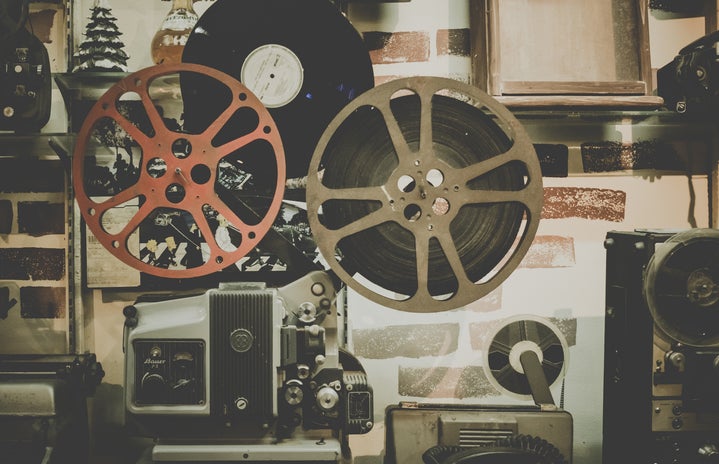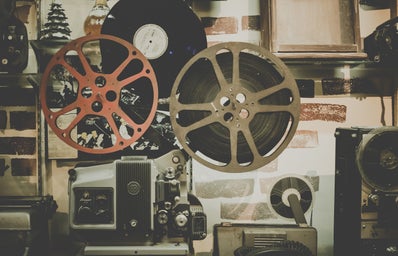The first day of Sundance, myself and two other girls were refueling from our day of sightseeing in a coffee shop, and a single man’s voice cut through the Park City tourist spot. I didn’t catch his exact sentence, but something about “lies, none of it’s true” was said, as he handed out multiple pamphlets, or maybe posters, about Leaving Neverland, the four-hour documentary on Michael Jackson’s alleged pedophilia. The opening week of the festival was encumbered with the weight of heightened police presence at the film festival due to the backlash from the documentary. When I tweeted about seeing the film, I immediately had Twitter trolls in my mention letting me know it was all lies, responding to my one tweet with threads of documents “proving” it all to be false.It was a frosty morning in downtown Salt Lake City the day I saw Leaving Neverland. All the news coverage I had read lead me to expect a gaggle of protestors, I saw five or six. A representative from TMZ was there, talking to the protestors, as a person and not a TMZ employee. He kept saying the documentary was pornographic, that he didn’t think it should be shown. I talked to two women, both middle aged white women who had flown in from Canada. Both had signs with Michael’s face, and one had her hands entirely covered in rings with crowns, signifying Michael. They both emphasized: they were there because he can’t be. One of them cried. I asked: Why Michael? Of all the pop icons in the world, why did he speak to them in such a way they’d cross borders to stand in the cold outside a theatre? One of them, named Katherine, said “I didn’t pick Michael, he picked me.” But he changed her life, she said.
The movie was long. It was four hours, in two parts. I sat front row, as there was no other seating remaining. Never have I been so grateful for an intermission. The documentary is told all through interview from the alleged victims and their families and loved ones. It follows James Safechuck and Wade Robson, who were both young boys when they met Michael and were extremely close with him. The first half of the documentary focuses on their childhoods and the abuse, giving graphic details of the sexual violence as well as deeply considering the ties the boy’s families had to Jackson. The second act of the documentary focuses on the aftermath of abuse, how these boys worked to become men despite what they had experienced, and how they navigated the lawsuits against Jackson by other boys he allegedly abused. The documentary is also deeply concerned with how the boys were emotionally trapped in the abuse, and the mental trappings of the mentor/mentee, father/son, lover/lover relationships that Michael fostered with these boys. I had anticipated, after befriending the protestors outside and extending them my sympathy, to be able to see holes in their story. I analyzed the entire movie through a lens of skepticism, against my own stance of believing survivors. I had seen those women cry over the way their hero was treated, and I wanted to believe them.
The recent documentary, “Surviving R Kelly,” made obvious waves for reconceptualizing how viewers were allowed to view R Kelly. It hopefully tanked his career for good, as he now is facing a mass of accountability and financial woes. However, Michael Jackson is a much different figure in the public psyche. Jackson, despite his highly-publicized trail of young boys, remains deeply beloved. “Thriller” is still the best-selling studio album of all time, with its title track still worshipped every October in dance studios worldwide. Jackson is known for his charity, his dancing, his music, and an aggressive commitment to worldwide compassion in his public image.
I walked out of the theatre half-dazed, woozy, hungry (four hours!) and trying to convince myself to do the right thing, be a good journalist, and interview the protestors who were still there. I stepped through the front doors to shouting. Those who had left the theatre met those who waited and started shouting. There was something about child abuse. Something about what people go through. And then the one protestor I hadn’t interviewed, as he seemed reluctant to speak to me, the only one who was male and the youngest there, a teenager, shouted over the crowd “The me too movement did nothing good for anybody.” And thus was my time to leave, teary-eyed. I went to an empty Greek spot down the street, overshared with an uncomfortable employee, and then sat in a booth with my lemon rice, feeling defeated.
I meant to write about the experience the week it happened, but every time I sat down to write my tell-all from the front lines of the Michael Jackson controversy, I shut down. I can still hear that idiot’s voice. I keep thinking about Safechuck and Robson coming down for the q&a, visibly tearing up. I made the briefest flash of eye contact with Safechuck (front row, my neck hurt so bad) and shared the quickest smile. These men could not be lying, as far as I can tell.
Many people have made a point of these men attempting to sue the Jacksons, claiming that they’re just after the money. I even saw one very clever young soul spell their names as “$afechuck and ROB$on” to really make their point. During the q&a someone asked: why sue, if not for the money? Safechuck’s response: pursuing legal action was justice for a little James.I, too, wish I could defend my younger self from the men who hurt me. I can not imagine the bravery of telling the world that one of the most beloved men who’ve ever lived that that man hurt them, irreparably and horrifically. But I also can not imagine having the icon who shaped me turn out to be a monster. It occurred to me in that Greek restaurant why those women flew from Canada. Why they were crying at 10 am on an open street. Why someone online was so quick to scold me for attending the documentary. They need to fight this film to believe that their vision of Michael Jackson is right. If they don’t shout in streets, if they don’t bother people on Twitter, they may have to admit the man who shaped their lives was a monster. I am trying to understand what I would do if someone I loved, someone who made me feel less alone or less weird or less wrong in this world, turned out to be the worst kind of person. You would almost have to do anything to believe it wasn’t true.
The Michael Jackson pedophilia scandal, which I’m sure will haunt much of our cultural dialogue of 2019 as a result of Leaving Neverland, is, formally put, messy as hell. I’ve been dreading the day it would air on HBO and stop being a small horror I’ve carried in my head since seeing the movie at Sundance. It’s going to become a conversation, and one I might have to have multiple times. It crosses conversations of race, grief, sexuality, the power of celebrity, sexual assault, and pedophilia. Ultimately, I will believe James Safechuck and Wade Robson. I wish I could not. Any financial benefit they could reap from this will not outweigh the worldwide vitriol they’ve received for speaking out. These are brave men. They’ve done something great with this documentary: they’ve sought justice for their younger selves. And many other people’s younger selves. And maybe, for other young people being victimized right now, who may understand that they, too, can have justice.
Check out Part 1 of the Sundance Documentary on HBO today, and stay tuned for Part 2, which will be released tomorrow (March 4th).



